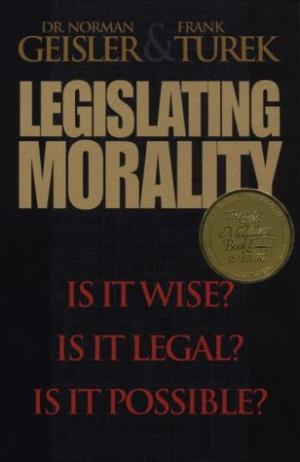What do you think?
Rate this book


272 pages, Hardcover
First published July 1, 1998
(1) Legislating is literally unavoidable (morality is always legislated), and (2) Americans should legislate the morality common to us all - the one expressed in our Declaration of Independence, the Constitution, and, until recently the laws of our land and decisions of the Supreme Court.Can We Legislate Morality?